August of last year marked the 100th anniversary of the beginning of the “war to end all wars.” Perhaps the most fabled combatant in that unprecedented war was a German aviator who scored an incredibly high count of confirmed kills in an era when confirmation was a long way from the ease of verification known during the age of gun cameras.
There is a strong possibility Baron Manfred Von Richtofen shot down far more than the 80 enemy fighters he is credited with. Even so, his accomplishments during the First World War were unequaled by any other ace until the next time Germany duked it out with half the planet. Since his death, The Red Baron has appeared as a character in movies about WWI too many times to count (sometimes with a fictional name, or as a pastiche of himself and other famed German pilots). Most often in British or American flicks he is depicted as an enemy, albeit a gallant one most of the time.
This film is an American edit of a German film. As you would expect in a German film, Von Richtofen is the hero–as he was to the surrounded and outnumbered German Empire during the Great War. I’m perfectly okay with that, since none of the Great Powers had altruistic purposes. Germany and Austria-Hungary were no more villainous than Russia, France, Great Britain, Italy or Japan. Nazism wouldn’t be developed until after the war was over.
Historians can find heroes and villains on any side. Which one Von Richtofen was depends solely on which side the observer identifies with in that first epic European bloodbath.
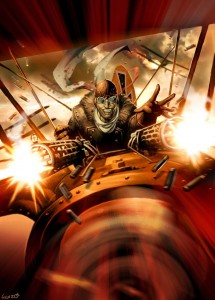 The film makers took a major detour from historical facts, and I’m okay with that, too…in theory. Aside from some superficial details about the Red Baron, they tell a story that is based in myth more than reality. And where the traditional myths surrounding the Baron didn’t fit the formula, they invented some myths that do. None of that necessarily made a great film impossible for the director and crew. Laurence of Arabia took liberties with historical reality, as did Patton and Braveheart. Then, of course, there’s the mac daddy of creative license taken on historical figures and events: Brian De Palma’s Untouchables. Even for an armchair historian like me, and a stickler for accuracy, talented film makers can tweak the facts and still wind up with a great flick.
The film makers took a major detour from historical facts, and I’m okay with that, too…in theory. Aside from some superficial details about the Red Baron, they tell a story that is based in myth more than reality. And where the traditional myths surrounding the Baron didn’t fit the formula, they invented some myths that do. None of that necessarily made a great film impossible for the director and crew. Laurence of Arabia took liberties with historical reality, as did Patton and Braveheart. Then, of course, there’s the mac daddy of creative license taken on historical figures and events: Brian De Palma’s Untouchables. Even for an armchair historian like me, and a stickler for accuracy, talented film makers can tweak the facts and still wind up with a great flick.
And director Nikolai Müllerschön had a talented cast, cinematographer, and effects department to make quite a humdinger, too. But before I go into what he did and failed to do, let’s do take a factual look at the real Red Baron.
As a Prussian aristocrat, Frieherr Manfred Von Richtofen was a cavalry officer at the outbreak of war. After the German advance in the west stalled and combat deteriorated into trench warfare, the machinegun had made it obvious that the days of horse cavalry were numbered. In 1915 Richtofen joined the Second Reich’s Imperial Air Service. He trained under one of Germany’s pioneer fighter pilots, Oswald Boelcke, and became a pilot himself.
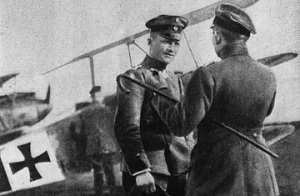
Richtofen wasn’t a natural flier and, incredibly, contemporaries testified that even by his final days he wasn’t exceptionally talented. What he was, though, was ruthless, relentless and methodical. Some aces of the First World War may well have been chivalrous, as legend would have it. Richtofen most assuredly was not. He fought just as he hunted—seeking results rather than some adherence to “sportsmanship.” He didn’t just want to shoot enemy planes down—he wanted to terminate enemy pilots so he wouldn’t have to face them again. If an enemy survived being shot down, he strafed them on the ground. As commander of Jasta 11 he taught other pilots to do the same.
Germany’s numerical disadvantage grew much worse after the USA entered the war, and it wasn’t just the ground forces that found themselves in increasingly hopeless tactical dilemmas. The Luftstreitkräfte was also being overwhelmed by force of numbers. German pilots and aircraft were called upon to fly more and more missions with less and less rest in between. American pilots during the next world war—a war they were winning—were often pushed past their limits of endurance on a routine basis. It’s no wonder Richtofen and his compatriots were pushed into the meatgrinder with no let-up as the situation became more desperate, and the high command ever more insistent that they perform miracles to turn the tide.
After scoring 8o confirmed kills (and confirmation was only possible when enemy aircraft went down on the German side of the front lines) Richtofen and his “flying circus” were just about used up: physically, mentally and emotionally exhausted. The Frieherr (Baron) himself suffered from a head wound, sustained in a previous dogfight, which gave him fits of nausea and migraines. After a sortie over enemy lines one day, he strayed too close to an anti-aircraft machinegun emplacement and was ventilated by a .303 slug. After his plane went down, Australian troops paused only long enough to strip his body before spreading the word that the Red Baron was KIA.
Unsatisfied with such an ignominious and anticlimactic end to a legendary symbol of German prowess, allied propagandists were quick to rewrite the Baron’s demise as an aerial victory for the RAF. They pitched it as if it were single combat from the Middle Ages or antiquity—the Teutonic champion had fallen to their own brave knight. Canadian pilot Roy Brown was declared their Lancelot; their Achilles, their David…Richtofen was Goliath, of course. Brown never claimed credit for the kill and, in fact, was so cramped from chronic diarrhea that day that he returned to his airfield only minutes after leaving it.
With all that in mind, it’s no wonder that film makers prefer to steer wide of historic reality.
Were I the writer/director, I too might have revised history to make Von Richtofen a gallant, chivalrous knight from the wild blue yonder. I wouldn’t have followed the current formula by putting the obligatory anti-war sentiments into his mouth, but dominant opinion right now is that such convictions, constrained by a profound sense of duty to “protect his men as best he can” makes a protagonist all the more noble while justifying a “man of conscience” participating in something so unconscionable as war. Obviously that’s what Müllerschön believed.
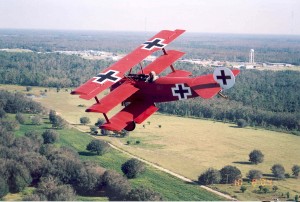
Romantic subplot? Sure, why not. Men fighting wars get lonely, and if we can’t find female company, we ache for it. A German ace and a French nurse? Crazier things have happened, I suppose, and it does potentially ramp up the drama. Talk about forbidden love! And yet despite some solid acting, this whole aspect of the film was lackluster. It probably needed some more development. Whether or not Richtofen had a French girlfriend during the war, there was nothing about this cinematic romance interesting enough to justify its inclusion in the movie.
Wanna ramp up the drama? How about having Richtofen and Brown meet before that fateful day in April 1918, become friends and rivals like two gunfighters who respect each other but just know one will kill the other some day? Two samurais full of mutual respect who dread the inevitable day they’ll have to tangle. A super-detective and master criminal who take time out from their cat-and-mouse to talk philosophy? A Saracen emperor and a European king who become friends while their armies fight? Two master chess players fated to clash…two MMA fighters on a collision course…two snipers on opposite sides… You get the idea. I found this to be a cheap tactic—and a painfully unoriginal one (as well as historically inaccurate). I might have forgiven this ham-fisted gimmick if it worked, but it didn’t. Not even close.
To pull off a story like this, the screenwriting would have to be very good, if not prodigious. Müllerschön would also need enough of a grasp on history that he could at least make his blatant falsehoods seem credible.
Fail, and fail.
Take, for instance, this snippet of dialog from a conversation between Brown and Richtofen as they stroll around no-man’s land:
BROWN: You gonna hook up with that French nurse? She’s got the hots for you.
Why stop there? I mean, if you’re gonna use anachronistic dialog, why not go all the way?
BROWN: Yo, Manny, I be like, y’know, doin’ the straight and level thang, y’know, I’m cool. Then why you wanna’ dive at me outa’ the sun fo’? Shootin’ yo’ gat like it’s a drive-by or somethin’. That’s a punk move, homey.
RICHTOFEN: Yo, it’s like this, dawg: I got nothin’ but love fo’ y’all, but I be like three kills away from my Blue Max, an’ I ain’t tryin’ to have you spoil my trip to Berlin, yo.
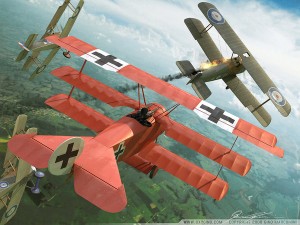
The death blow for this flick was the decision to tell the story in a disjointed New Wave style. Instead of focusing on the significant plot developments, turning points and action, Müllerschön went the European route, choosing seemingly at random what parts of the narrative to show us—ensuring the audience can’t invest their sympathy for the title character or even grasp how the war and Richtofen’s career are progressing.
Where the film really had the chance to shine was in the aerial combat scenes. Perhaps it could have shined bright enough to compensate for some of the major weaknesses. But not when there’s no beginning, middle and end to your battle scenes. The Red Baron was like watching This Sporting Life—just substitute the rugby matches with dogfights and there you have it in all its ambiguous avante garde mediocrity. And that’s a double shame because what aerial combat they did show looked really cool. It could have knocked our socks off if only Müllerschön had told a story with all those beautiful shots.
In short, The Red Baron could have overcome most of its shortcomings with a different approach, but Müllerschön was unorthodox when he should have been conventional, and conventional when he should have been unorthodox.
(This post was originally written for SOFREP’s “Hot Extract” column. Many changes took place at SOFREP and Hot Extract was either abandoned, or it became all about games or something. Anyway, I wanted to re-post this as part of my WWI 100th Anniversary Extravaganza that never panned out. Well, I couldn’t find where I’d saved the file. I requested the articles I wrote for SOFREP from my old contact there and never even got a reply. They weren’t using them, as all the movie and book reviews we did for them were vanished from cyberspace, but they might very well still be saved there. Oh, well. But then I finally found my own copies saved in a subdirectory on a flash drive I’d misplaced. So here ya go.)
New England millenial William Lynch loses his family to an old-school crime syndicate back East, and vows revenge. He is trained by professionals for his war on the gangsters, and transforms into a killer himself. One might worry, based on the title and the original synopsis, that this is an intense psychological thriller delving deep into the id (or superego?) of a privileged frat boy transforming into a homicidal vigilante. While that transformation certainly does take place, and even though the story is told in first-person, the author’s camera follows the bloody, bullet-ridden action rather than lock on a close-up of the hero’s tortured psyche.




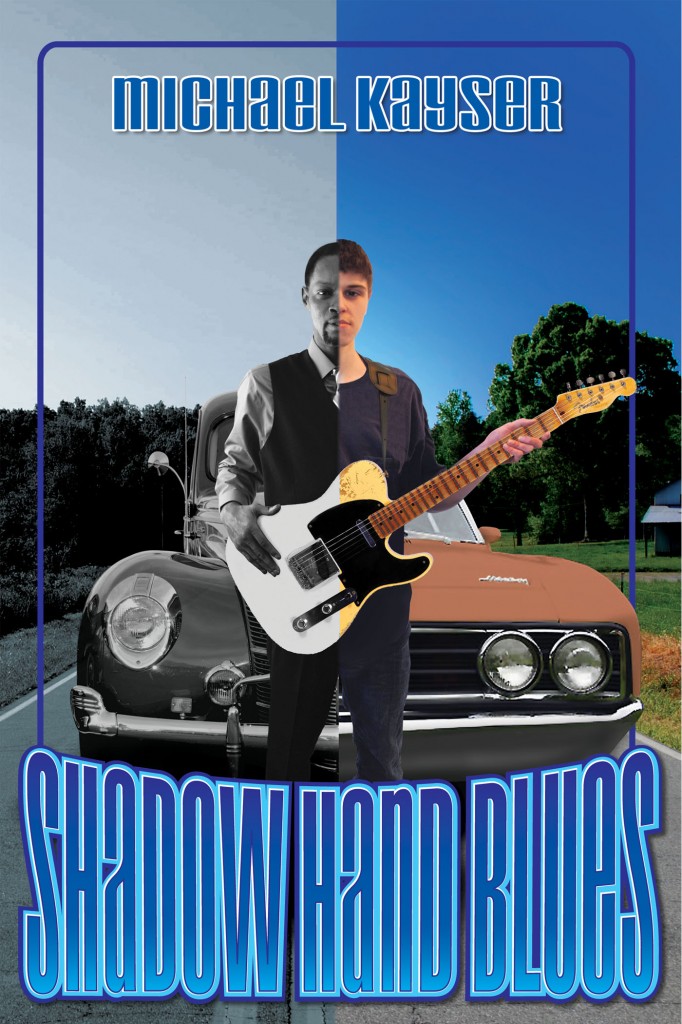
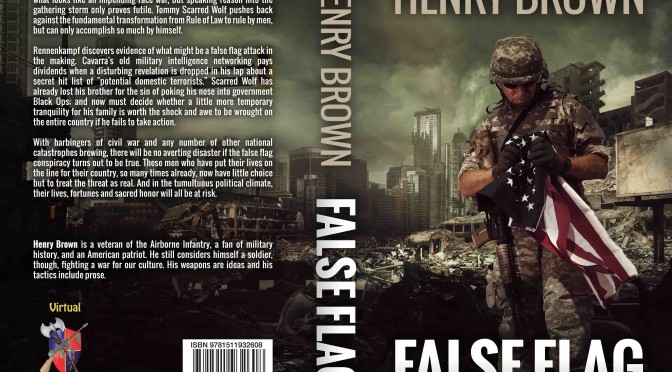
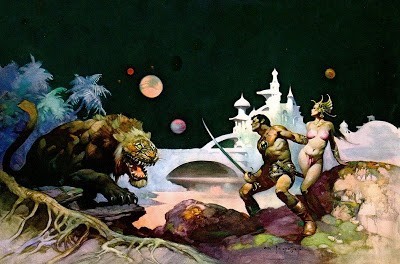
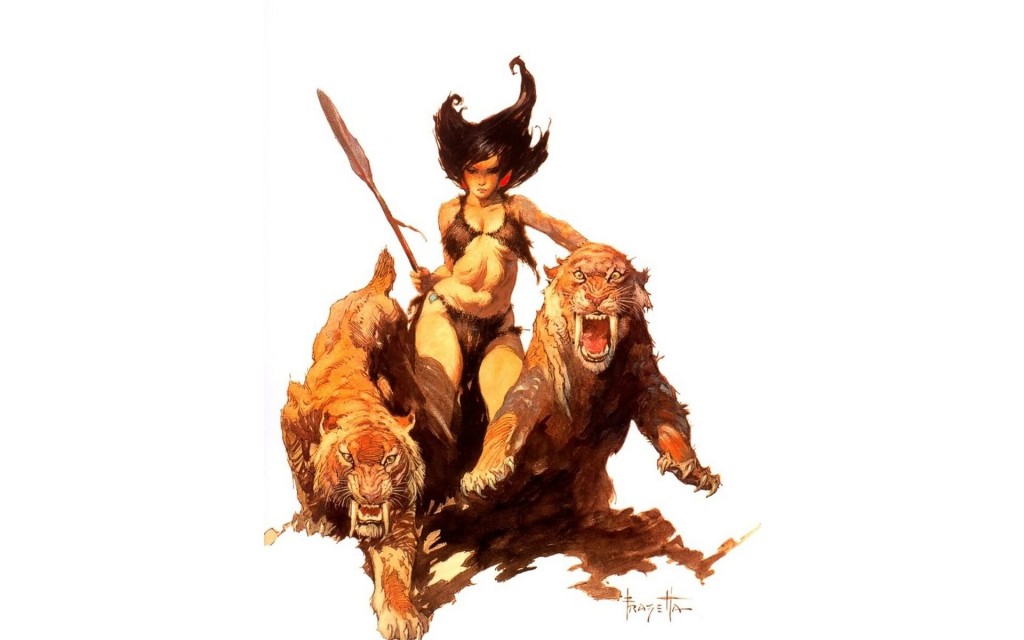
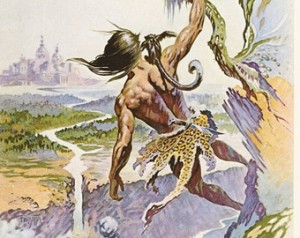
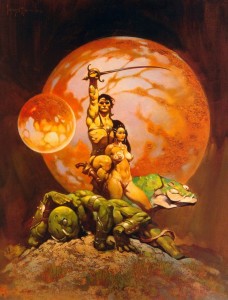
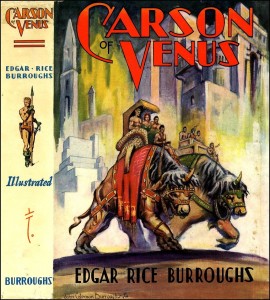


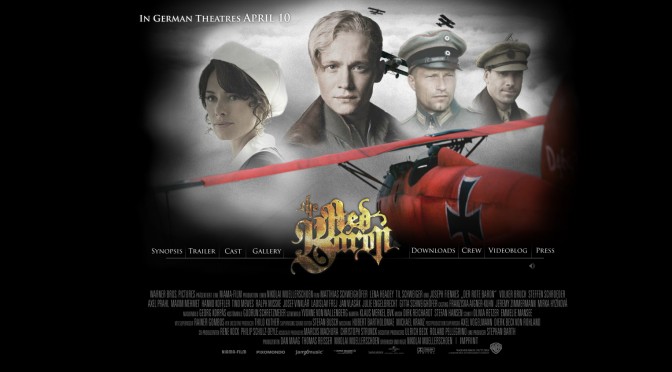




 re of red pill readers; even some authors like me offering an alternative to the chick-lit, romance, paranormal, and other typical pinkshirt pap with Marxist themes and pixie superninjas.
re of red pill readers; even some authors like me offering an alternative to the chick-lit, romance, paranormal, and other typical pinkshirt pap with Marxist themes and pixie superninjas.